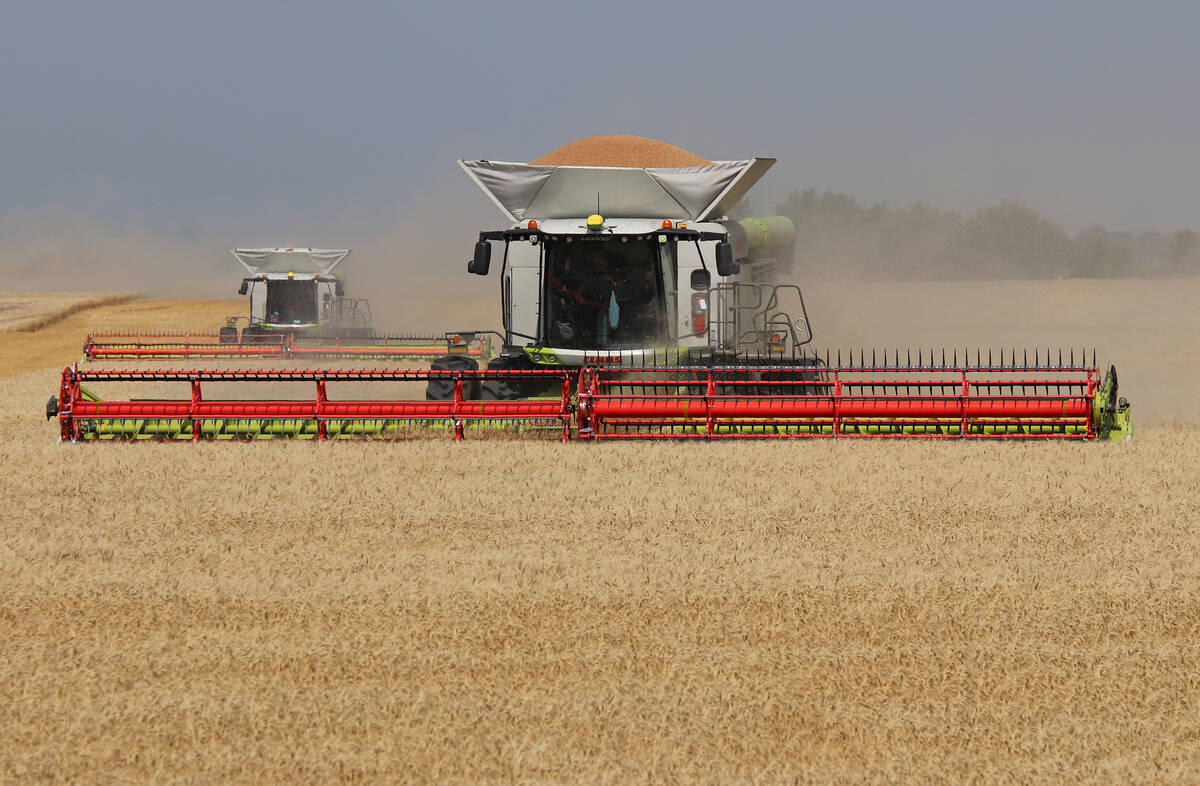Federal officials are fighting to save Manitoba’s ditch fish.
That might make anglers happy, but it outraged some farmers, who gave
an earful of complaints to a department of fisheries and oceans
official during the Keystone Agricultural Producers annual convention
in Winnipeg.
“I’m extremely frustrated,” said Teulon, Man., farmer Dennis Persoage.
“DFO seems more concerned about fish habitat than the rural habitat.”
Kathy Fisher, the DFO’s Manitoba manager, defended the department,
saying it was committed to saving fish habitat in drainage ditches
Read Also

China’s grain imports have slumped big-time
China purchased just over 20 million tonnes of wheat, corn, barley and sorghum last year, that is well below the 60 million tonnes purchased in 2021-22.
while allowing farmers to drain their land of excessive moisture.
“We’re committed to working together,” she said.
Drainage has always been a major concern in many parts of the eastern
Prairies. Wet conditions and heavy soils can interfere with seeding and
crop growth unless there is a good drainage system to handle sudden
floods.
Provincial governments used to have sole responsibility for policing
drainage systems and other small waterways.
The federal government and provincial governments tried to negotiate a
nation-wide agreement by which the federal fisheries laws could be
administered by provincial authorities. But those negotiations broke
down in 1999.
Soon afterward, the DFO began moving enforcement officials into the
provinces, where they became involved in day-to-day management of
drainage systems.
It has caused a lot of problems, said Doug Dobrowolski, a rural
councillor who farms near Winnipeg.
“They’ve come in heavy handed,” he said.
“The work isn’t getting done.”
Dobrowolski is a member of a stakeholder group that is advising the
federal and provincial governments on how to streamline and improve the
administration and approval system.
Last summer, Dobrowolski and his fellow councillors had to deal with an
18 centimetre rain that flooded farmland.
The RM cleared out some old drainage channels but was concerned
fisheries authorities would stop the work if they could find a fish in
the water.
“They know they have the power and they’re using a heavy hand,” said
Dobrowolski.
Many farmers at the KAP meeting felt the fisheries department has
unrealistic ideas about the importance of ditches as fish habitat.
“I can hardly wait for the day when I can see swimming upstream into my
drainage ditches dolphins, orcas, seals, tuna, because when that
happens I’m going to quit farming and open up Ed Rempel’s sea world,”
joked Ed Rempel.
Others said many drainage ditches in eastern Manitoba have fish in them
because the area has had several wet years in a row.
In a normal year, the ditches would be dry.
Many ditches, which were once clear and free of fish, are now overgrown
and have accidentally attracted fish.
When local officials try to clear the channel and return it to its
original condition, they often have trouble getting approval from DFO.
Fisher said the DFO hopes to design a faster approval system by working
with other levels of government and with the people being affected.
This year Manitoba’s most significant drainage ditches are being
evaluated as fish habitat, Fisher said.
Once they’re classified, the fisheries department will be able to issue
faster approvals for maintenance if the ditches are not found to be
significant fish habitat.
If they are significant, mitigation plans will be more quickly drawn up
that allow the maintenance to go ahead while still protecting the fish
habitat. That may mean clearance and maintenance after the spawning
season or other sensitive periods.
Fisher said ditches provide important fish habitat. Some ditches are
former streams that were widened by farmers and municipalities.
That habitat can be damaged by disturbances that occur during
maintenance, by clearing vegetation that supports fish, and by causing
murky water to flow downstream and hurt other fish habitat.
She denied that DFO cares more about fish than people. Protecting the
fish protects a money-making resource, she said.
“If we can save the spawning areas and the nursing areas in the
upstream areas and those fish migrate into the downstream areas, that
all contributes to the fishing resource which brings a lot of money
into the province of Manitoba,” said Fisher.















